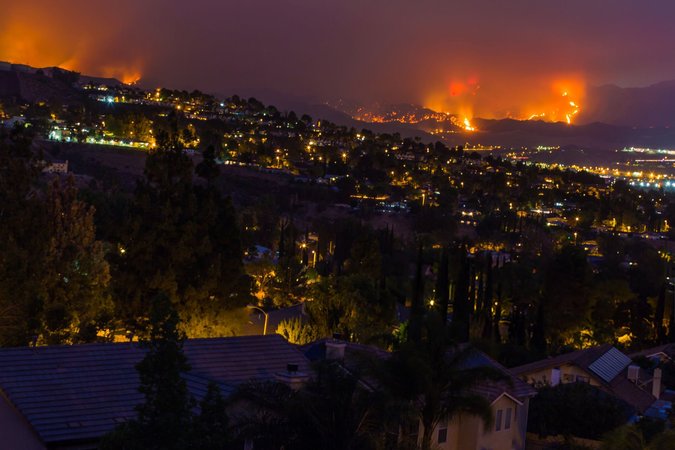Western US Wildfire Smoke Costs $2.3 Billion per Year in Health Impacts and Lost Enjoyment
A new working paper, published by scholars at RFF and the University of Alaska Anchorage, finds that camping trips to public lands are worth $107 less on average if they are affected by wildfire smoke.
💡 What’s the story?
A new working paper, published by scholars at Resources for the Future (RFF) and the University of Alaska Anchorage, finds that camping trips to public lands are worth $107 less on average if they are affected by wildfire smoke.
The authors estimate that 21.5 million visits to public lands in the western United States are affected by wildfire smoke each year. Based on the paper’s calculations, these conditions result in approximately $2.3 billion in annual welfare losses due to health impacts, diminished enjoyment, and other factors.
Author Perspective
“As illustrated by the fires burning this summer in remote parts of Canada, smoke often affects more people than a fire itself. Understanding the economic costs of smoke will be important to forming sound policy and accurately assessing the benefits and costs of wildfire management.”
—Matthew Wibbenmeyer, RFF Fellow
🔎 How do we know?
By analyzing decisions to cancel or keep reservations for campsites in the path of wildfire smoke, the authors calculate the “welfare losses” associated with smoke. In this paper, welfare losses represent how much someone would need to be compensated to be indifferent to smoky conditions. These costs include perceived health effects of smoke inhalation, diminished enjoyment, loss of views, travel costs, and more. In total, losses add up to approximately $107 per person per three-day trip, or $38 per day.
To calculate the welfare losses, the authors developed a strategy to take advantage of campground reservation cancellation data, building off a well-established method for understanding the value people place on recreation sites based on costs they are willing to incur traveling to them. The authors combined this data with satellite data on wildfire, smoke, and air pollution, focusing on daily observations for nearly 1,000 campgrounds in 11 western states from 2010 to 2017.
Author Perspective
“A crucial piece of the research was distinguishing campsite reservation behavior ahead of time, before conditions are known, and cancellations close to the arrival date, when smoke actually takes place. Federal agencies keep detailed records that lent themselves well to the study.”
—Jacob Gellman, University of Alaska Anchorage postdoctoral researcher
🌎 How can impacts differ?
The extent of total welfare losses depends on the region. Some states, such as Arizona, saw high visitation but a low proportion of smoke-affected visits. Others such as Wyoming saw relatively low visitation but a higher proportion of smoke-affected visits which drove up the average annual welfare losses.
The authors found that, while average welfare losses were approximately $107 per trip, damages were larger when campgrounds were affected by consecutive days of smoke. The data show that losses could climb to approximately $432 per person per trip when a campground was affected by smoke on all seven days in the week of arrival. On the other hand, if a campground was affected by smoke on only one day during the week of someone’s trip, estimated damages were as low as $32 per person per trip.
Author Perspective
“Wildfire smoke is a growing issue in the United States, especially in the West. Unfortunately, peak wildfire season coincides with peak season for outdoor recreation—and the interactions between the two come with costs. These costs, which aren’t reflected by the exchange of dollars and cents, are everywhere. And they’re vital to the conversation we’re having about our climate future.”
—Margaret Walls, RFF Senior Fellow
📚 Where can I learn more?
For more, read the paper, “Welfare Losses from Wildfire Smoke: Evidence from Daily Outdoor Recreation Data,” by University of Alaska Anchorage postdoctoral researcher Jacob Gellman; RFF Senior Fellow Margaret Walls; and RFF Fellow Matthew Wibbenmeyer.
Resources for the Future (RFF) is an independent, nonprofit research institution in Washington, DC. Its mission is to improve environmental, energy, and natural resource decisions through impartial economic research and policy engagement. RFF is committed to being the most widely trusted source of research insights and policy solutions leading to a healthy environment and a thriving economy.
Unless otherwise stated, the views expressed here are those of the individual authors and may differ from those of other RFF experts, its officers, or its directors. RFF does not take positions on specific legislative proposals.
For more information, please see our media resources page or contact Media Relations and Communications Manager Annie Tastet.





